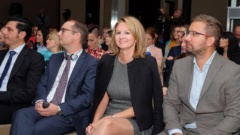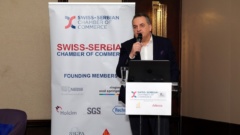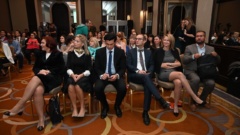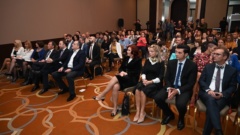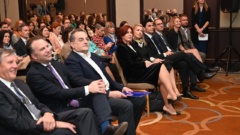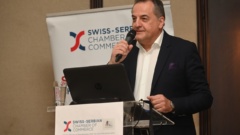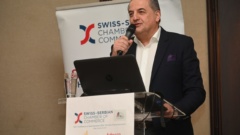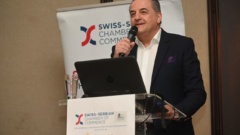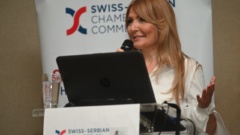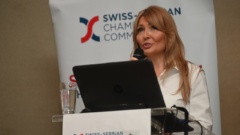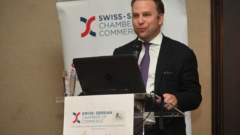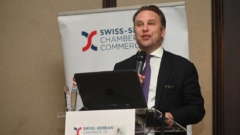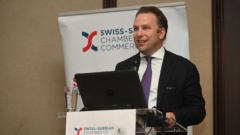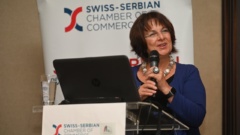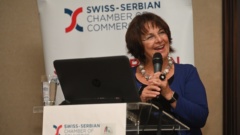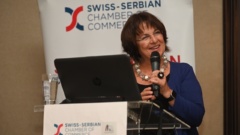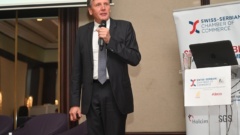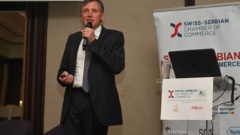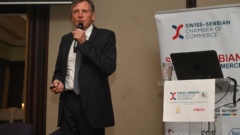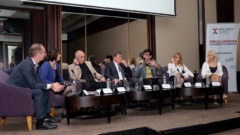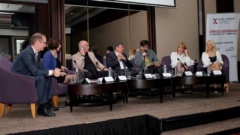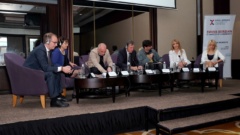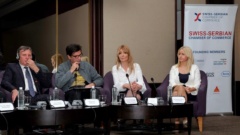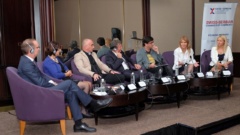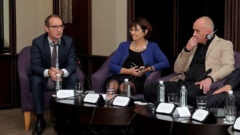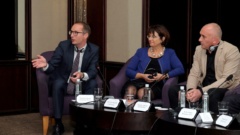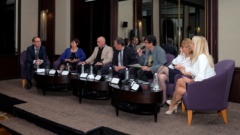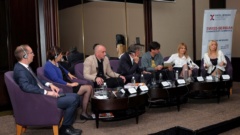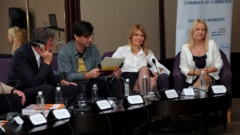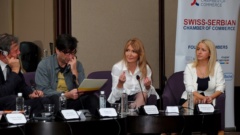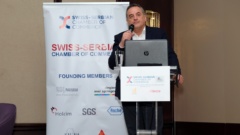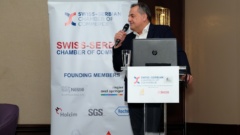SWISS MODEL FOR SERBIAN EDUCATION:
Over 6,000 students in the dual education system
Belgrade, October 2019. – Over 6.100 students and approx. 900 companies are involved in the dual education system in Serbia, not only in Belgrade and Novi Sad, but in over 50 cities in Serbia, said Majo Mićović, President of the Swiss-Serbian Chamber of Commerce, in his opening speech of the Conference “Dual Education Serbia 2019: the role of the private sector”. The Conference was sponsored by SSCC members “Adecco” and “Standard Furniture Serbia”.
The conference was part of the ”Week of dual education in Serbia’‘ which took place from October 21-25, 2019 in Belgrade, in organization of the Chamber of Commerce and Industry of the Republic of Serbia (PKS) and the Ministry for Education, Science and Technological Development of the Republic of Serbia, and in partnership with the Austrian Economic Chamber (WKO), Austrian Development Agency (ADA), Swiss-Serbian Chamber of Commerce (SSCC) and the German-Serbian Chamber of Commerce (AHK). The event provided a platform for the public-private discussion about the role of the private sector companies in developing and implementing the dual education system.
‘’For the second time, SSCC is demonstrating its capability to recognize the critical points for the further development of bilateral relations between Switzerland and Serbia by organizing the second Conference on the topic of dual education. This Conference is gathering all relevant stakeholders: private company representatives of both countries, members of the diplomatic core, business associations and public administration. The Swiss VET system provided significant instructions for the development of the Serbian model of the dual education system by enabling the synchronization of the demands of the national economy with capacities of the education system and interests of young people in our country. The awareness about the intense market changes, technology development and digital era has been raised, and the local society can now better recognize the need for qualified and adequate labor force., said Majo Mićović, SSCC President.
‘’Three Governments (Switzerland, Germany, Austria) joined their efforts and know-how, and Dr. Renold met with the Serbian President who supports all the efforts for the education system reform. I am happy to say that we have achieved our objective and brought back a missing element to the Serbian education system, which is the joy of education and the joy of learning. The dual education system offers the opportunity to young people to learn theory but also to gain practical knowledge in companies.” – said dr Gabrijela Grujić,, Assistant Minister,
Ministry of Education, Science and Technological Development of the RS.
Jean-Luc Oesch, Chargé d’Affaires a.i. of Switzerland, Embassy of Switzerland to the Republic of Serbia and to Montenegro stressed that the topic of dual education is very important for bilateral relations between Switzerland and Serbia.: ‘’Today, education is one of the most essential factors for securing technological progress and innovation, thus it is most important to ensure that the standard of education develops alongside technological progress. This is particularly true when it comes to digitalization, a sector where Serbia has a brilliant future, and so relevant for the world of tomorrow. “
Dr Ursula Renold, Head of Division Comparative Education System Research, ETH Zurich, is the only international honorary member participating in the Serbian Government Commission for dual education.
“CCIS, SSCC and its member companies are the most important stakeholders to help improving the productivity of the companies and train the next generation of talents. Furthermore, research shows that companies are facing a fast change of qualification requirements due to digital transformation. Therefore, all countries that invest in dual education may have a comparative advantage in the future.“, said dr Renold
Arthur Glättli, Managing Director Swissmem VET Department, from Winterthur, emphasized the importance of the public-private partnership for the successful development of competence-based curricula for vocational education and training.
“Developing of a competence-based curricula for vocational education and training programs must be the result of a close private public partnership. The responsible bodies for VET programs should be the private sector organized either by branch associations of private companies or by chambers of commerce. Under its initiative and lead the curricula development process and the implementation must be coordinated with al effected companies, authorities, professional schools and VET education centers. The VET system of a country must be an integral part of the national education laws which must guarantee the possibility of further education of VET diploma holders up to any university degree”.- noted Mr. Glattli.
The presentations were followed by a panel discussion on the topic of the private sector’s role in the development and implementation of the dual education system, with the following participants:
- Dr Gabrijela Grujić,
- Dr. Ursula Renold,
- Arthur Glättli,
- Mirjana Kovačević. Director, Education Division, Chamber of Commerce and Industry of the Republic of Serbia
- Tomislav Miletić, Chief Mentor, Inmold Plast
- Thomas Schauer, Regional Manager South-East, Gebrüder Weiss.
READ MORE:
Interview with Mr. Arthur Glattli: www.blic.rs








